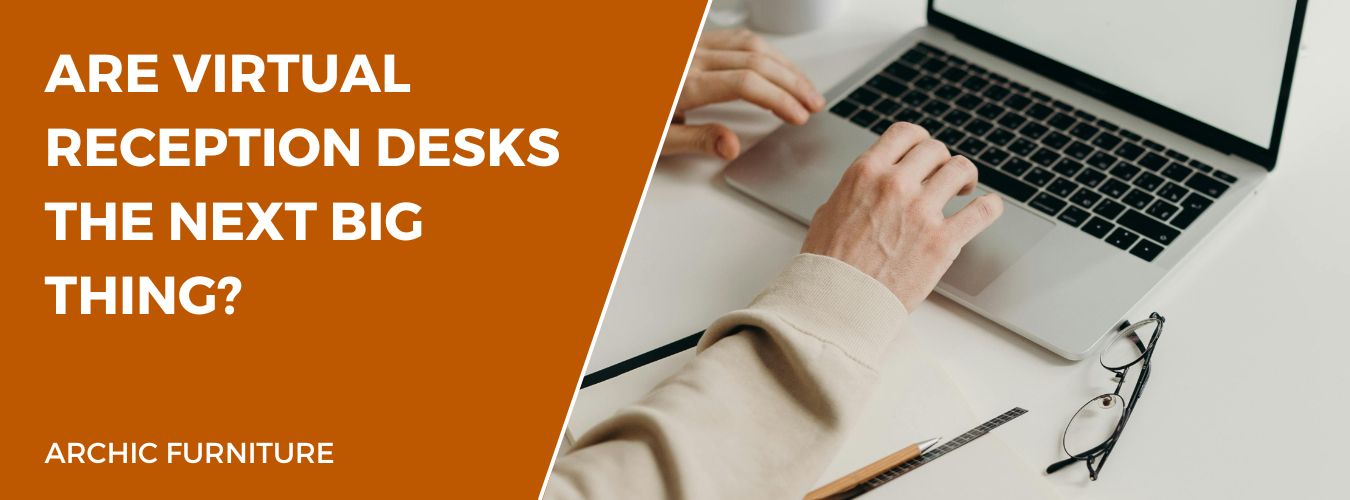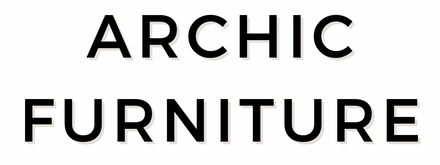

Are Virtual Reception Desks The Next Big Thing?
Virtual reception desks are changing how businesses greet visitors and handle front desk tasks. These digital solutions offer modern ways. Manage check-ins, answer questions, and direct people.
Virtual receptionists use software to streamline front desk operations. Letting companies focus on their main work.
These systems can do many things a human receptionist does. They can sign in guests, make name tags, and tell staff when visitors arrive. Some even use video chats to connect people with live help if needed.
Virtual desks can save money and work 24/7.
They don't need breaks or days off. But they also have limits. They can't read social cues or handle complex issues like a team of front desk staff can. As tech gets better, these systems may do more in the future.
Key Takeaways
- Virtual reception desks use software to handle front desk tasks
- They can save money and work all day, every day
- These systems have limits but may improve with new tech
Evolution of the Virtual Reception Desk
Virtual reception desks have come a long way in recent years. In the past, a friendly face greeted visitors at the front desk. Now, technology handles many reception tasks.
This shift started with simple video intercoms and digital visitor logs. Virtual receptionists soon emerged to handle basic tasks. They could check in guests and answer common questions. This freed up staff time for other work.
As artificial intelligence improved, so did virtual reception systems.
They gained the ability to:
- Recognize faces and voices
- Provide personalized greetings
- Schedule meetings
- Print visitor badges
- Give directions
Today's virtual receptionists use advanced AI to offer 24/7 support. They can handle complex requests and even make video calls to staff members.
Experts predict virtual receptionists will become even more lifelike and capable. They may soon use holograms or augmented reality.
This evolution has changed how businesses manage their front desks. Virtual systems streamline operations and cut costs. They also create a modern, high-tech image for companies.
But the human touch remains important. Many businesses now use a mix of virtual and in-person reception. This combines the best of both worlds - efficiency and a personal welcome.

Core Functions of Virtual Reception Desks
Virtual reception desks perform several key tasks to streamline front desk operations. These systems handle visitor check-ins efficiently, reducing wait times in lobbies. They also use natural language processing to understand and respond to visitor inquiries.
Calendar integration is a crucial function. Virtual receptionists sync with digital calendars to manage appointments and prevent scheduling conflicts. This ensures accurate and consistent scheduling for organizations at any location.
Another core function is managing incoming communications.
Virtual receptionists can:
- Answer phone calls
- Respond to emails
- Handle live chats
They provide information to visitors and can even process payments in some cases.
Security is enhanced with virtual reception desks. They can verify visitor identities and issue temporary access badges. This creates a more secure environment for employees and guests.
Virtual receptionists also excel at collecting and organizing visitor data. They can log visitor information and generate reports. This helps businesses track foot traffic and analyze visitor patterns.
Lastly, these systems offer multilingual support. They can communicate with visitors in various languages. Making businesses more accessible to a diverse clientele.
Key Benefits
Virtual reception desks offer many advantages for businesses. They can enhance customer service by providing 24/7 availability. This means clients can get help anytime, even outside normal business hours.
Cost savings are another key benefit. Virtual receptions end the need for full-time, in-person staff. This cuts down on expenses like salaries and office space.
Improved scheduling is also possible with virtual front desks. They can integrate with calendar systems to reduce booking errors and conflicts.
Virtual receptions boost efficiency through automation. Common tasks like visitor check-ins and basic inquiries. It can be handled without human involvement.
- Increased productivity
- Better first impressions
- Enhanced security
- Multilingual support
- Easy scalability
Virtual front desk systems can also improve security. They often include features for visitor verification and access control.
Lastly, these systems offer flexibility. Businesses can customize the virtual reception to fit their needs and brand image.

Technological Components
The visitor reception desk webcam uses several key technologies to function effectively. These components work together to create a seamless experience for visitors and staff.
At the heart of the system is specialized software. This software manages visitor check-ins, handles appointment scheduling, and coordinates communication. It often integrates with existing calendar and security systems.
Hardware is another crucial element.
This typically includes:
- Touchscreen kiosks for self-check-in
- Cameras for visitor identification
- Printers for badges or passes
- Tablets or displays for staff communication
Artificial intelligence may also play a role in some virtual reception systems. AI can help with tasks like natural language processing for voice interactions. Facial recognition for security purposes.
Network connectivity is essential for these systems to operate. A stable internet connection allows for real-time updates and remote management. It also enables integration with other building systems.
Many virtual reception desks incorporate video calling capabilities. This allows visitors to speak with remote receptionists. Or specific staff members when needed. High-quality audio and video equipment ensures clear communication.
Data security features are built into most systems to protect visitor information. Follow privacy regulations. This may include encryption, secure storage, and access controls.
Challenges and Limitations
Virtual reception desks face some hurdles whether in technology or staffing. One big issue is tech problems. Poor internet can cause dropped calls or glitchy video chats. This may frustrate customers and hurt the business image.
Another challenge is the lack of personal touch. Virtual receptionists can't greet visitors with a warm smile or offer them a cup of coffee. Some clients prefer face-to-face interactions.
Security is also a concern. Virtual systems need strong safeguards to protect sensitive data. Hackers could potentially access private information if proper measures aren't in place.
Training virtual receptionists can be tricky. They need to learn about many organizations and their unique needs. This takes time and effort to get right.
Lastly, time zone differences can pose problems. A virtual receptionist in a different time zone. It may not be available during a company's peak hours.
- Limited personal interaction
- Potential tech issues
- Data security risks
- Complex training needs
- Time zone challenges
Future Perspectives
The virtual reception desk is poised for significant growth and innovation. We can expect these systems to become more sophisticated. Widely adopted as technology advances.
AI and machine learning will play a crucial role in enhancing virtual receptionists. These technologies will enable more natural conversations and improved task-handling capabilities.
Virtual front desk solutions are likely to incorporate advanced features like:
- Facial recognition for enhanced security
- Multilingual support for global businesses enhances the visitor experience at the reception desk.
- Integration with smart building systems
The future may also bring holographic receptionists. Creating a more immersive experience for visitors. This technology could blend the benefits of virtual and in-person interactions.
Businesses focus on efficiency and cost-effectiveness. Virtual reception systems will become increasingly common. They offer 24/7 availability and consistent service quality.
Data analytics will allow companies to leverage valuable insights from visitor interactions. This information can help improve customer service and streamline operations.
The adoption of virtual receptionists may lead to changes in office design. Lobbies could be reimagined as more flexible, multifunctional spaces.
As these systems evolve, they will likely become more customizable. Suit different business needs and company cultures. This flexibility will further drive their adoption across various industries.

Traditional vs. Virtual Reception Desks
The choice between traditional and virtual reception desks is becoming increasingly important. Traditional reception desks involve an on-site employee who greets visitors in person. They handle tasks like answering calls, scheduling appointments, and managing deliveries. These receptionists provide a personal touch and face-to-face interaction.
Virtual reception desks use remote staff and technology. Perform similar duties as front desk staff. They manage inbound calls, appointments, and calendars without being physically present. This setup offers flexibility and cost savings for businesses.
Virtual receptionists can offer extended availability via a digital reception desk. Often beyond standard business hours. This can be beneficial for companies serving clients in different time zones.
Traditional receptionists excel at providing a welcoming physical presence. They can assist visitors directly and handle tasks that need an in-person touch.
Virtual reception services use advanced technology to manage calls and appointments efficiently. This can lead to improved productivity and streamlined operations.
Top-Rated Reception Desk Brands
MDD
MDD is a leader in high-quality reception desks. Their designs focus on both looks and practicality. MDD offers ADA-compliant reception desks that make workspaces more inclusive.
Their desks come in different sizes and styles. This lets businesses pick the right fit for their space. MDD uses strong materials like MDF to make their desks last longer.
Many of their desks have built-in storage. This helps keep the reception area tidy. Wire management holes are common in MDD designs. These keep cords neat and out of sight.
Reception Counter Solutions
Reception Counter Solutions makes versatile desks for different needs. They offer options for small and large spaces. Their products often include glass tops for a modern look.
The company focuses on making sturdy desks. Many of their designs use thick, tempered glass. This adds style to the workplace while being tough enough for daily use. Some models come with silver or white laminate accents for extra flair.
Their desks often have features like built-in cabinets. These give receptionists easy access to supplies. Some models include locking drawers for security. This helps protect sensitive information.
Conclusion
Virtual reception desks are changing how businesses manage their front offices. They offer many benefits for companies of all sizes.
These systems can handle tasks like visitor check-ins, appointment scheduling, and security screening. This frees up staff time for other important work.
Virtual receptionists provide 24/7 support. Without the need for full-time front desk staff. This can lead to big cost savings for organizations.
The technology behind virtual front desks is always improving. Advanced features like facial recognition and touchless check-in are becoming more common.
As more companies adopt this technology. Virtual reception desks will likely become the norm. They offer an efficient, professional way to manage visitors and streamline operations.
Businesses looking to modernize their front desk. They should consider trying a virtual reception system. It could transform how they welcome guests and handle daily operations.
Frequently Asked Questions
How can a virtual receptionist benefit a medical practice?
A virtual receptionist can help medical practices in several ways. They can schedule appointments, and answer basic questions. Route calls to the right staff member.
This frees up time for medical staff to focus on patient care. It also ensures patients can reach someone 24/7, even outside office hours.
What features should one look for in the best virtual reception desk solutions?
The best virtual reception desk solutions offer several key features. These include call answering, appointment scheduling, and message taking.
Advanced systems may also provide call routing and voice mail. Integration with office software. Look for solutions that can be customized to fit your business needs.
How do virtual receptionists enhance customer service for small businesses?
Virtual receptionists can greatly improve customer service for small businesses. They ensure every call is answered promptly and professionally.
They can handle basic inquiries. Freeing up business owners to focus on more complex tasks. This leads to happier customers and fewer missed opportunities for the organization.
What are the capabilities of a virtual front desk kiosk?
A virtual front desk kiosk can perform many tasks. It can greet visitors, check them in, and notify staff of their arrival.
Some kiosks can also print badges, provide directions, and answer common questions. This technology can streamline office operations and improve security.
In what ways can a receptionist effectively work remotely?
A remote receptionist can perform most tasks of an in-person receptionist. They can answer calls, schedule appointments, and manage emails.
With the right technology, they can also check security cameras. Control access to the building. Good communication skills and reliable internet are key for success.
What distinguishes a reception desk from a concierge desk in a virtual setting?
In a virtual setting, the main difference is in the services provided. A virtual reception desk typically handles basic tasks like answering calls and scheduling.
A virtual concierge desk offers more personalized services. This might include making reservations, arranging transportation, or providing local recommendations.
If you are still on the fence and not sure what to purchase, reach out to us, we recommend connecting with one of our furniture experts who would be delighted to help you find the perfect virtual reception desk for you. You can reach out to us at:
Call/Text: (916) 262-7257. or;
Email: support@archicfurniture.com
We would be more than happy to help you find the perfect reception desk for your needs!



